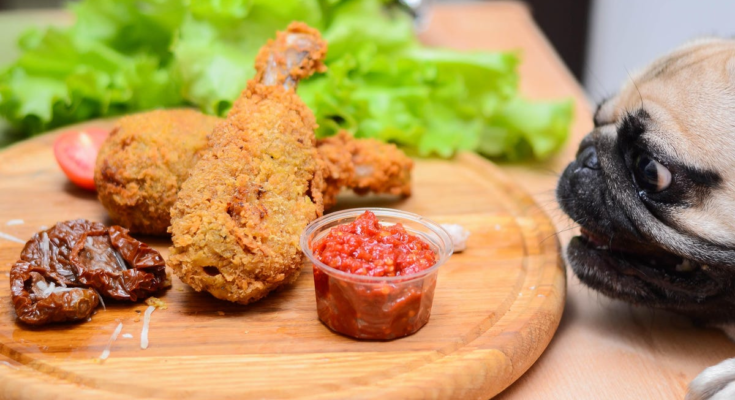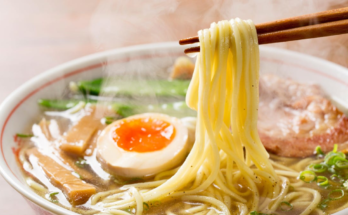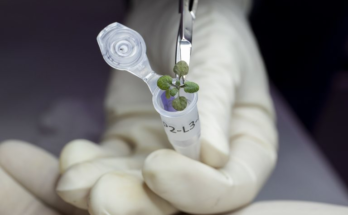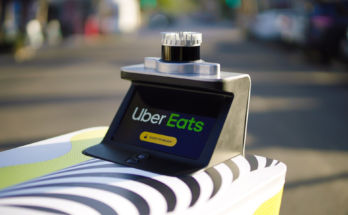
Plenty of human snack foods are bad news for dogs, as you may remember from our advice not to give your dog turkey skin on Thanksgiving and to keep them away from all kinds of candy, not just chocolate, on Halloween. So you won’t be surprised to learn that your Super Bowl party spread also has a bunch of things you’ll need to keep out of your doggo’s reach.
Bones from ribs or chicken wings
The tiny bones inside chicken wings can puncture or block your dog’s digestive tract. This may not happen every time—I once had a dog who snarfed down whole plates of discarded wing bones on multiple occasions and lived to tell the tale—but it’s a definite risk.
Other cooked bones can also be an issue, even if they’re larger. Ribs, in particular, can make splintery shards when crunched. (That same dog did end up needing to go to the emergency room once when she stole a larger, cooked bone and a broken piece got stuck inside her mouth.)
So keep bones out of your pup’s reach, whether they still have the meat on them or not. If they do eat some bones and seem to be fine, keep an eye on them. Call your vet if you notice your pup has constipation, bloating, bloody stool, or vomiting after ingesting bones.
Anything fatty
Fatty foods can trigger a bout of pancreatitis, a potentially life-threatening condition. So watch that your pup doesn’t get into anything that’s fatty, greasy, or dangerously cheesy. A few bites of a fatty treat isn’t necessarily a problem, but if you catch them emptying a whole bowl of queso, watch out for signs like vomiting, diarrhea, fever, and lethargy.
Macadamia nuts
Nuts can be a problem for many reasons (including that their high oil content qualifies them as a fatty food), but macadamia nuts in particular are known to make dogs sick. The exact reason isn’t know, but it may be a toxin in the nuts. Symptoms to watch out for, according to the Pet Poison Helpline, include “severe lethargy, increased body temperature, vomiting, tremors, joint stiffness, and inability to walk (due to hind limb weakness).”
Grapes and raisins
Grapes, and foods that contain grapes, seem to be toxic to dogs’ kidneys. This includes the bowl of grapes you may have put out on the table, as well as any treats that include raisins. Sultanas and some types of currants are also made from grapes, so consider those in this category, too. Call your vet if you know your dog ate any amount of grapes or raisins. Symptoms can include vomiting, diarrhea, and abdominal pain.
Onions and garlic
Onion rings are definitely out, but also consider foods where onions or garlic may be major ingredients. An onion-y salsa or guacamole, for example, is something to keep away from your dog.
Besides stomach upset, large doses of garlic or onions can damage your dog’s red blood cells, causing anemia. Symptoms of anemia include pale gums, weakness, and fatigue.
Chocolate
Okay, this one you probably knew about. Dark chocolate and baker’s chocolate are particularly dangerous to dogs even in small amounts. (Milk chocolate is less toxic, but a dog could still get sick if they manage to eat an enormous amount.)
Caffeine
You’re probably not offering your dog sips of coffee, but watch out for spilled energy drinks, or desserts that contain coffee beans. Dogs are more sensitive to caffeine than we are, so it doesn’t take much to cause hyperactivity, abnormal heart rhythms, tremors, and elevated body temperature.
Alcohol
It’s not funny to get a dog drunk, so hopefully you’re not offering your pup beer on purpose. But if they do get into somebody’s drink, it’s important to know that dogs can get alcohol poisoning, too. Hops, the traditional flavoring in beer, is also toxic to dogs, although if they’re drinking enough beer to get sick, the alcohol is the bigger concern.



